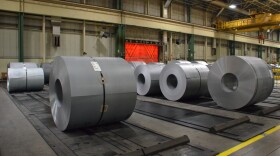Oil is being shipped across the country in train cars that even the government says are unsafe, and two environmental groups are taking on the U.S. Department of Transportation, saying the agency isn't doing enough about it.
The Sierra Club and ForestEthics petitioned the department to ban the use of "DOT-111" tank cars with potentially explosive crude oil, because they are "prone to puncture, spills, and fires in train accidents."
Attorney Patti Goldman with Earthjustice said two-thirds of the crude oil transported by rail in the United States is in this type of tank car, which she described as "flimsy."
"They've been called 'soda cans on wheels,' and they puncture as least twice as often as the next tank car," she said. "And the National Transportation Safety Board has said they pose 'unacceptable public risks.' "
Goldman said DOT-111 tank cars already have been banned for shipping most hazardous chemicals. The Transportation Department says it won't ban using them for crude-oil shipment and instead is planning a rule-making process about the issue. Goldman said that means a multiyear phase-out that her clients contend would take too long.
In the meantime, the Transportation Department has issued an advisory urging rail shippers to use the "safest available tank cars in their fleet" for crude oil. The DOT-111s can be retrofitted, but Goldman claimed the feds are caving to pressure from oil and rail companies experiencing a tank car shortage, by putting off any tougher action.
"The industry, and this is mainly the oil industry, wants to double the fleet before they take these DOT-111s off the rails," she said. "So, they want to add more than 60,000 tank cars - and then remove and retrofit the DOT-111s."
The Transportation Department estimates 15 rail accidents a year involving oil spills with the current fleet of tank cars, and 10 major rail disasters over a 20-year period.




